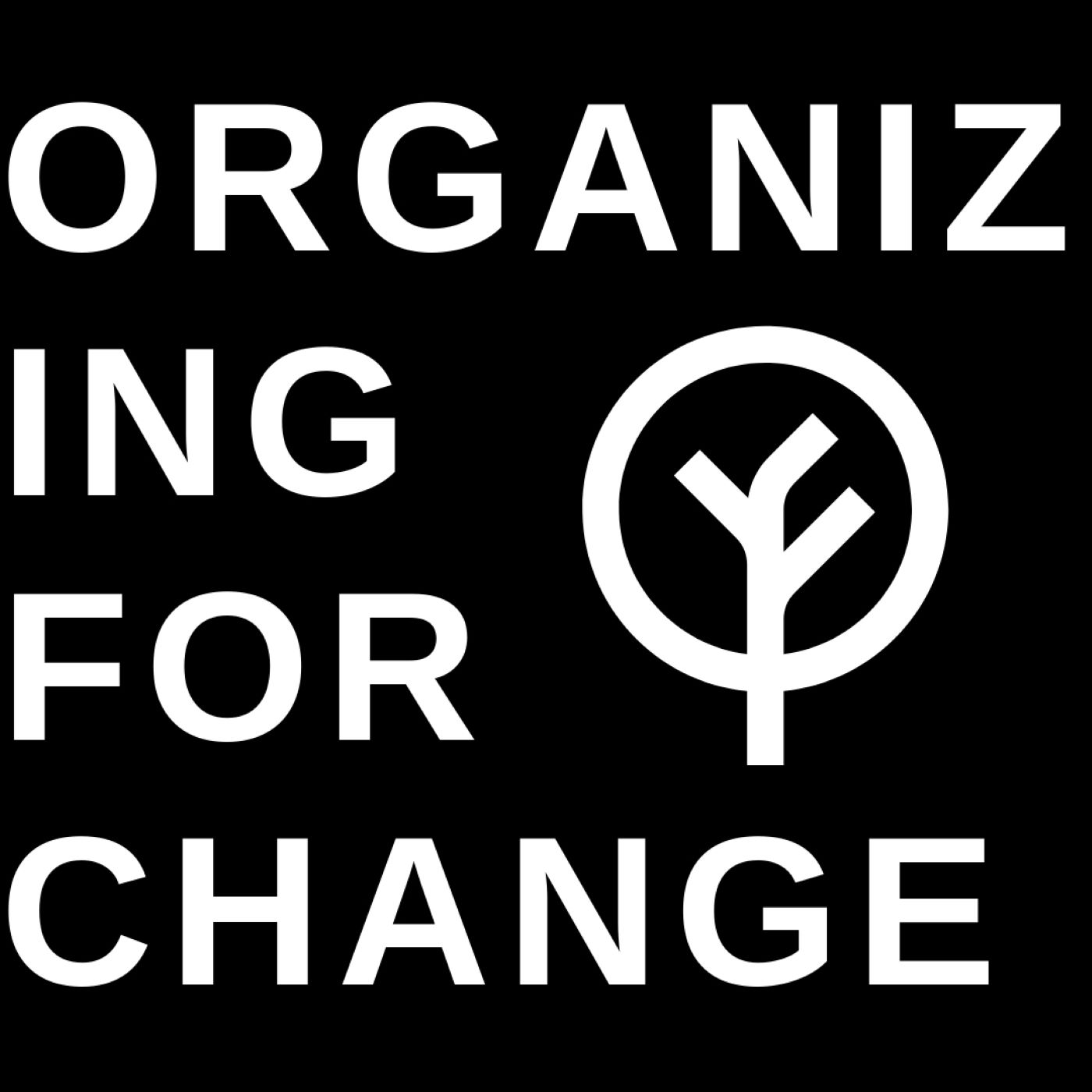
12.1K
Downloads
48
Episodes
Get the Show Notes at: http://eepurl.com/dGJgp9 Have you ever wished you could hear what others are doing to make a difference in their world? The goal of this podcast is to help Substance Use Prevention Coordinators, equip coalitions, organizations, and individuals to bring change to their community.
Get the Show Notes at: http://eepurl.com/dGJgp9 Have you ever wished you could hear what others are doing to make a difference in their world? The goal of this podcast is to help Substance Use Prevention Coordinators, equip coalitions, organizations, and individuals to bring change to their community.
Episodes
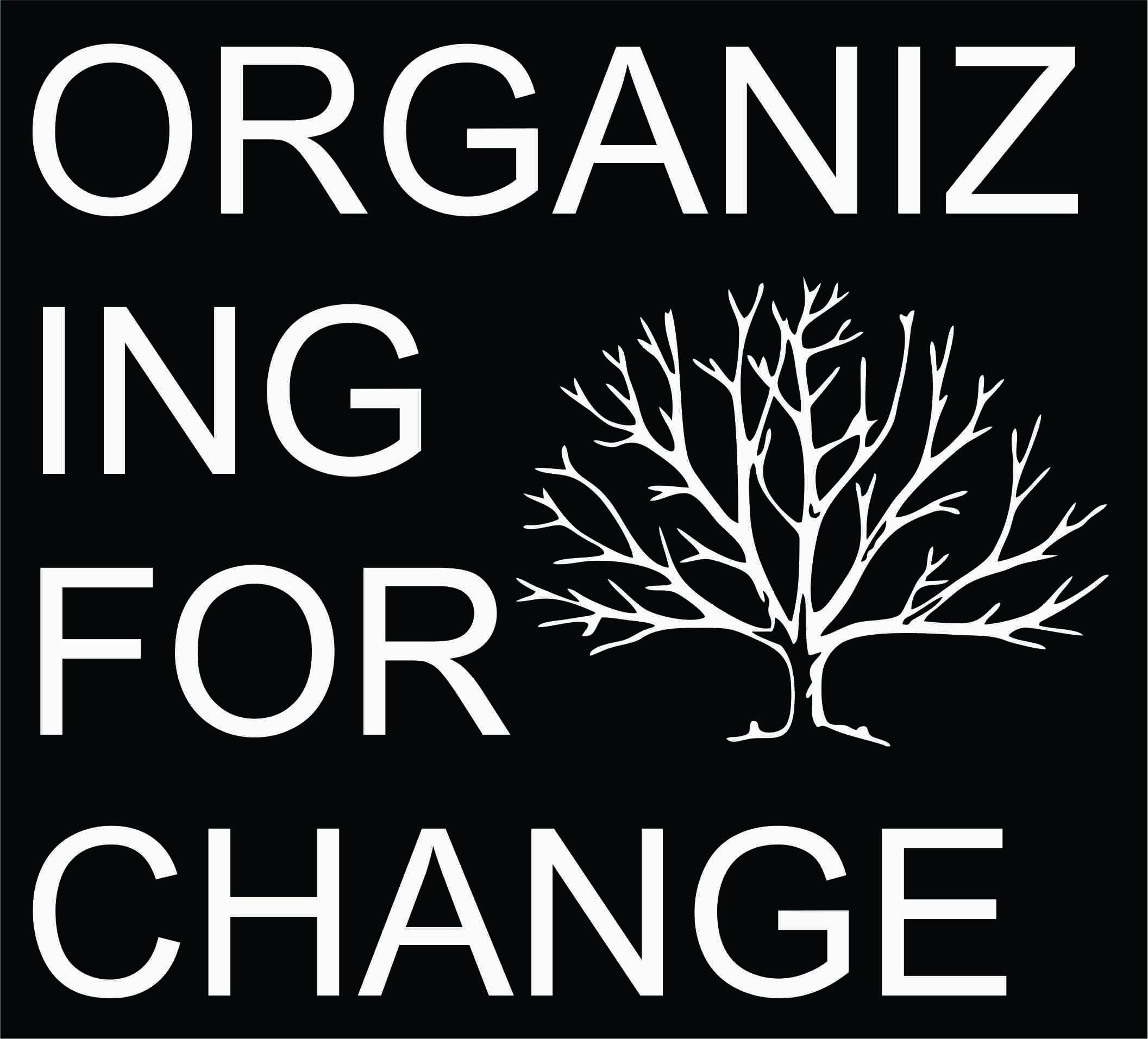
Monday Aug 28, 2017
08 - Community Change and Leadership
Monday Aug 28, 2017
Monday Aug 28, 2017
Organizing for Change Podcast - Episode 8 Show Notes
Goal: “to equip coalitions, organizations, and individuals to bring change to their community”
Host, Amanda Decker joins Holly Wehde, the CEO of Trades of Hope to talk about leadership and its importance when creating change.
Welcome to Episode 008 of the Podcast: Community Change and Leadership
Guest: Holly Wehde, CEO Trades of Hope
Holly is a visionary, a church planter, pastor’s wife, speaker, and Missional Entrepreneur. Whether it’s helping the hurting, starting Trades of Hope, mentoring leaders or helping marriages and families, her passion is helping people live with passion and purpose.
Trades of Hope helps women in desperate places by selling their fair trade products through the party plan model. This creates a dignified partnership empowering women out of the sex industry, slums and sweatshops and extreme poverty.
Holly talks to us today about creating trades of hope and the importance of leading and bring her company from a start up to five years later employing women all over the world.
Trades of Hope Website: http://www.tradesofhope.com/
Trades of Hope Facebook: https://www.facebook.com/Tradesofhope/
Holly Wehde: http://mikeandhollylife.com/
Organizing for Change Website: https://organizing4change.podbean.com/
Organizing for Change Twitter: @organizing4chng
3 Insights from This Episode:
- Remember why you began. Holly speaks about crunching numbers late into the night and getting an email at 3am that told a story of a person that was deeply impacted by her organization. She says this really reminded her why she was putting in the long hours to make a difference. It is important to remember why you began the work and to communicate change stories to the team of people you are working with.
- Don’t be afraid of failure. Failure paves the way to success. If you have a dream, don’t be afraid to fail. Anybody who has ever done something truly great in this world, has failed multiple times.
- Be realistic. Sometimes our emotions get too attached to the cause and we make decisions based off emotion that are not the best for the organization. It is important to thoughtfully make decisions that are based on reality and not emotion.
Books Holly recommends:
Hustle: The Power to Charge Your Life with Money, Meaning, and Momentum by Neil Patel, Patrick Vlaskovits, Jonas Koffler
Winning with People by John Maxwell
Cool technology Holly is using these days: “Basecamp” https://basecamp.com/
Next Episode: Subscribe now for free and you won’t miss episode 009

Tuesday Jul 25, 2017
07 - Using Data to Advance Your Mission
Tuesday Jul 25, 2017
Tuesday Jul 25, 2017
Goal: “to equip coalitions, organizations, and individuals to bring change to their community”
Welcome to Episode 007 of the Podcast: Using Data to Advance Your Mission
In this episode you will hear why it is so important to use data to advance your mission.
Guests: Lyn Frano & Stephanie Patton - from the OASIS Coalition
Bio- Lyn Frano:
Lyn Frano is a Licensed Social Worker with over 27 years of experience working with children, youth, and families. Lyn currently works for the OASIS coalition to coordinate 4 Massachusetts communities to address substance use disorder by using the coalition model. Lyn formerly worked in the Weymouth Health Department and coordinated the efforts of the 5 year federal Drug Free Communities Support Program grant and Mayor Kay’s Opiate Task Force
Bio- Stephanie Patton:
Stephanie Patton, MPH is seen as a prevention leader in the state of Massachusetts by her peers. She has been the Prevention Coordinator for Organizing Against Substances in Stoughton (OASIS) in Stoughton, Massachusetts since 2012, but has been involved with OASIS since its inception in 2004. A primary focus of her work has been policy change at the local, regional and state level. Prior to this role, Stephanie served as the Program Director for the Southeast Center for Healthy Communities, where she provided technical assistance to substance abuse prevention coalitions throughout Southeastern MA. Stephanie brings over 15 years of experience in public health, substance abuse prevention and coalition building. She has presented nationally on coalition development and other topics and has extensive experience in developing and leading trainings. Stephanie has a Master’s Degree in Public Health from the University of Massachusetts, Amherst and a Bachelor’s Degree from Wellesley College.
Host, Amanda Decker joins Steve Wright from R&R Partners to talk about how good communication creates effective change.
OASIS Website: http://stoughtonoasis.org/
OASIS on Twitter: @stoughtonoasis
OASIS on Facebook: https://www.facebook.com/stoughtonoasis/
CADCA Website: www.cadca.org
MassTapp Website and Planning Tools: http://masstapp.edc.org/sapc-planning-tool
Organizing for Change Website: https://organizing4change.podbean.com/
Organizing for Change Twitter: @organizing4chng
Insights from This Episode:
Using data ensures you are accurately targeting your approach. Programs and solutions can cause more harm than good if data is not collected to make sure the actual issue is being addressed.
Lyn shares a prevention parable to show how data collection is important in both talking about the issues in the community and coming up with solutions to address the issues.
Qualitative and Quantitative Data: To paint a realistic picture of what is happening in your community, you will need to collect both qualitative and quantitative data.
Collect Quantitative Data: Even if you don’t have funding to complete a survey or hire someone to collect data, your community has data available! Look for groups that are already collecting data such as police, hospitals, schools and encourage data sharing.
Collect Qualitative Data: A great way to start (regardless of funding) is to conduct “key stakeholder interviews” with key members of your community. These conversations will help you find out what is happening in your community.
Next Episode: Subscribe now for free and you won’t miss episode 008

Tuesday Jun 27, 2017
06 - Partnering with Law Enforcement
Tuesday Jun 27, 2017
Tuesday Jun 27, 2017
Goal: “to equip coalitions, organizations, and individuals to bring change to their community”
Host, Amanda Decker has a conversation with Chief Dave Martineau and Deputy Chief Jeffrey Bukunt from the Avon Police Department in Avon MA.
Welcome to Episode 006 of the Podcast: Partnering with Law Enforcement.
Guests: Chief Dave Martineau and Deputy Chief Jeffrey Bukunt from the Avon Police Department in Avon MA
Avon Police Department Website: https://www.avon-ma.gov/police-department
ACES (Avon Coalition for Every Student) Website: www.acesavon.com
Organizing for Change Website: https://organizing4change.podbean.com/
Organizing for Change Twitter: @organizing4chng
About this Episode: Building relationships are one of the keys to creating community level change. The Avon coalition (ACES) is located in Avon MA about 20 minutes south of Boston. In 2009, the Youth Risk and Behavior Survey data came back with the report that 47% of Avon High School youth were engaged in underage drinking. As a community Avon decided to mobilize to address this community problem with community solutions. The community formed the ACES coalition and created a strategic plan using data to address multiple issues. As a result of the hard work in the community, eight years later, underage drinking has been significantly reduced down to 18%.
One of the key partners in addressing this issue was and continues to be the Avon Police Department. You will hear in this episode the importance of building relationships both the police with the community (including youth) and the community with the police. As you listen in on our conversation, I hope it will inspire you and give you some ideas as to what change is possible when everyone works together for a common cause.
Key Points:
1. Use the facts when you talk to youth about drug use.
Youth can fact check whatever you tell them at a rapid pace. It is important to use accurate facts when speaking about underage drinking and drug use.
2. Police are an ally.
Chief Martineau talks about how sometimes parents will use the police as a scare tactic for their child. “Don’t do xyz or the police will “get” you. This reinforces in a child’s mind that the police are the “bad guys”. Police would rather see themselves as allies to parents. The Chief also talks about how they “can’t arrest their way out of the problem of substance abuse disorder”. Police want to help people get the help they need.
Dept. Chief Bukunt speaks about doing things in the community in a non enforcement manner to continue to build that positive view of the police from the community perspective.
3. Education has to begin early.
Teaching youth good decision making early, is key to educating youth about drugs and alcohol. (Many studies show waiting to speak to youth about drugs and alcohol till middle school is often too late.)
**What is carfentanil? http://boston.cbslocal.com/2017/06/07/carfentanil-massachusetts-brockton-quincy/
Next Episode: Subscribe now for free and you won’t miss episode 007
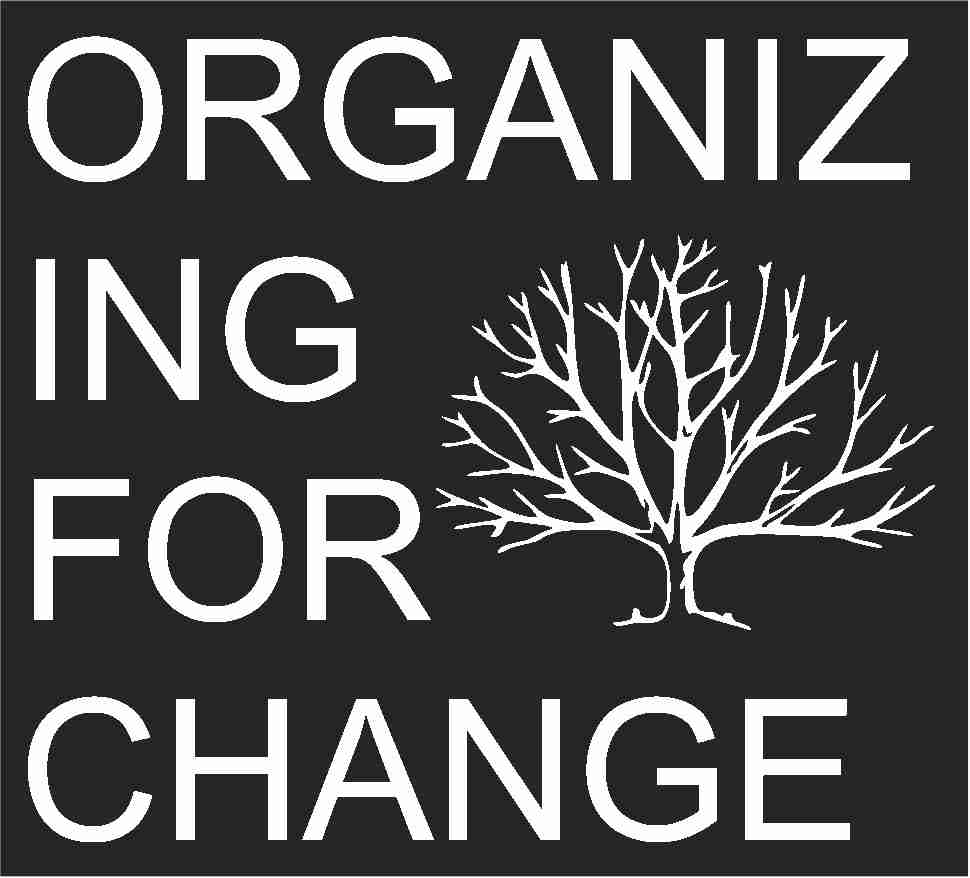
Tuesday May 30, 2017
05 - The Community Toolbox
Tuesday May 30, 2017
Tuesday May 30, 2017
Organizing for Change Podcast - Show Notes
Goal: “to equip coalitions, organizations, and individuals to bring change to their community”
Host, Amanda Decker has a conversation with Doctor Jerry Schultz, Professor at the University of Kansas, and key developer of the Community Tool Box.
Welcome to Episode 005 of the Podcast: Using the Community Tool Box to create change.
Guest: Jerry Schultz PH.D, Professor at the University of Kansas
Professor Jerry Schultz Ph.D Bio Page: https://communityhealth.ku.edu/jerry-schultz-phd
Community Toolbox Website: http://ctb.ku.edu/en
CADCA Leadership Forum: http://www.cadca.org/events/26th-national-leadership-forum-samhsas-12th-prevention-day
Organizing for Change Website: https://organizing4change.podbean.com/
Organizing for Change Twitter: @organizing4chng
Bio:
Dr. Schultz holds a Ph.D. in anthropology and an M.A. in medical anthropology from the University of Kansas. He works primarily with issues involving building capacity of urban neighborhoods to solve local problems, understanding systems change, evaluating community health and development initiatives, and qualitative methodologies. He is part of the Community Tool Box (CTB) development team, a global online resource for community building. His responsibility includes both content and design development for the CTB. Dr. Schultz has co-authored numerous articles on evaluation, empowerment, and community development. He has been a consultant to several foundations, community coalitions, and state agencies.
The Community Tool Box:
The Community Tool Box is a free, online resource for those working to build healthier communities and bring about social change. It offers thousands of pages of tips and tools for taking action in communities.
Want to learn about community assessment, planning, intervention, evaluation, advocacy, and other aspects of community practice? Then help yourself to over 300 educational modules and other free tools.
Under continuous development since 1994, the Community Tool Box is widely used in teaching, training, and technical support. Currently available in English, Spanish, and Arabic and with millions of user sessions annually, it has reached those working in over 230 countries around the world.
WHY THE COMMUNITY TOOL BOX?
The vision behind the Community Tool Box is that people — locally and globally — are better prepared to work together to change conditions that affect their lives. Our mission is to promote community health and development by connecting people, ideas, and resources.
With the belief that people can change their communities for the better, and informed by disciplines including applied behavior analysis, public health, and community psychology, partners at the University of Kansas and collaborating organizations developed the Community Tool Box as a public service.
Next Episode: Subscribe now for free and you won’t miss episode 006
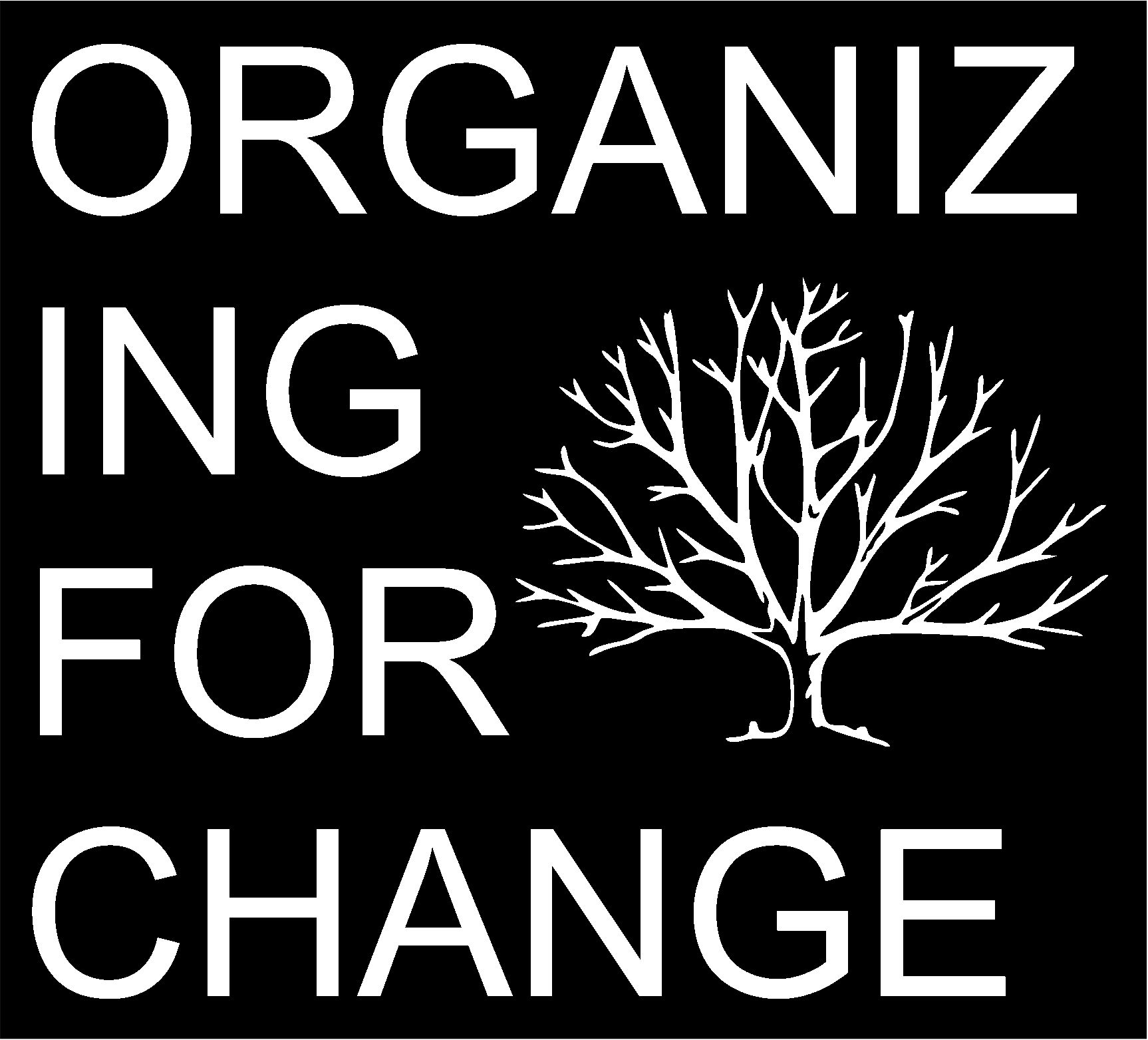
Tuesday Apr 25, 2017
04 - Communicating Your Message
Tuesday Apr 25, 2017
Tuesday Apr 25, 2017
Goal: “to equip coalitions, organizations, and individuals to bring change to their community”
Host, Amanda Decker joins Steve Wright from R&R Partners to talk about how good communication creates effective change.
Welcome to Episode 004 of the Podcast: Communicating Your Message
Guest: Steve Wright, R&R Partners
Steve’s Blog with R&R Partners: http://www.rrpartnersblog.com/author/steve-wright-director-of-strategic-communications/
Parents Empowered Montage: https://www.youtube.com/watch?v=Aq0C36EQcdc
Parents Empowered Website: http://parentsempowered.org/
Parents Empowered Facebook: https://www.facebook.com/ParentsEmpowered/
Organizing for Change Website: https://organizing4change.podbean.com/
Organizing for Change Twitter: @organizing4chng
3 Insights from This Episode:
- Research your audience: Steve and his team used research to test and evaluate every part of their campaign. Steve shares an example of how his team used focus groups with both parents and youth to determine what to name their campaign. Too often people put out a message without doing the homework to test their message out to make sure the right audience is being reached with their message and that their message is having the response they are looking for.
- You are not alone: There are many people and organizations in your community who would love to partner with you to help share your message. Steve talks about how they were able to involved unlikely partners such as the Waste Removal companies to help spread their message.
- Keep your message simple: Don’t pick many messages to send to your community. Really narrow your message down to be as simple as possible. You can’t do everything, so focus on one issue and do what you do...well. One message heard 10 times is more effective than 10 messages heard once.
Next Episode: Subscribe now for free and you won’t miss episode 005
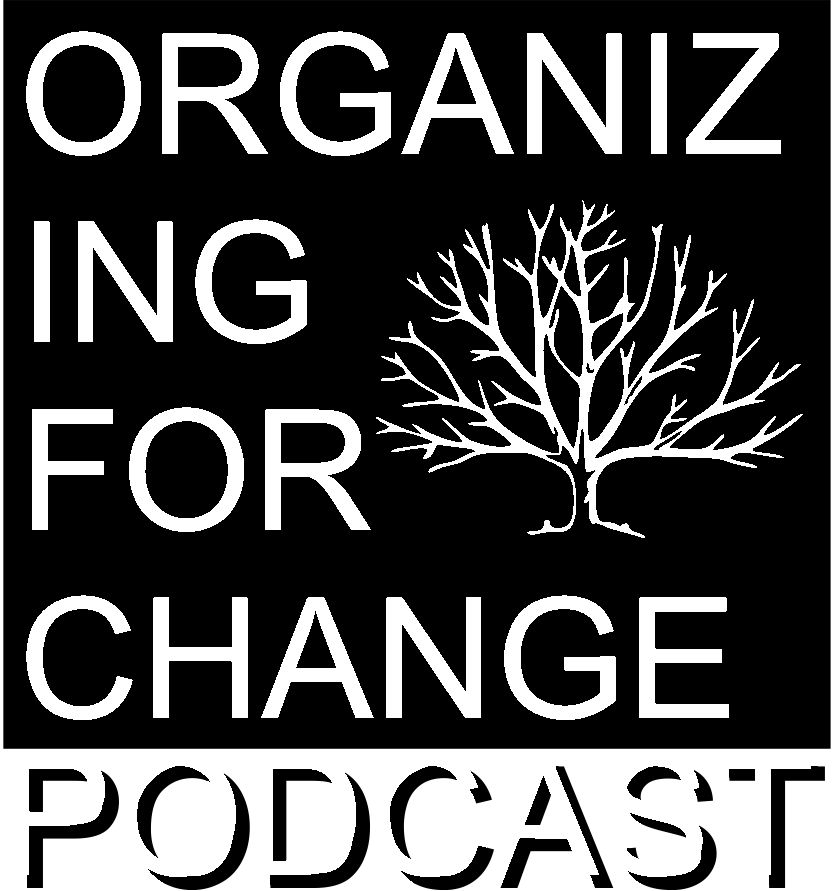
Tuesday Mar 28, 2017
03 - The Education Sector and Community Change
Tuesday Mar 28, 2017
Tuesday Mar 28, 2017
Organizing for Change Podcast - Show Notes
Goal: “to equip coalitions, organizations, and individuals to bring change to their community”
Host, Amanda Decker joins the Paul Zinni, Superintendent of Avon Public Schools to talk about how the education sector can be involved in community change!
Welcome to Episode 003 of the Podcast: The Education Sector and Community Change
Guest: Paul Zinni, Superintendent of Avon Public Schools
Avon Public Schools Website: http://www.avon.k12.ma.us/
Organizing for Change Website: https://organizing4change.podbean.com/
Organizing for Change Twitter: @organizing4chng
3 Insights from This Episode:
1. Invest in Relationships: Investing in relationships allows you to have buy in when creating community change. Change is complex and relationships give you the opportunity to problem solve issues and create solutions beforehand. When people feel like they have a voice, and that voice has been heard, they are more likely buy into the change.
2. Look at the Why: There can be many reasons why a sector is hesitant to join the coalition. It is important to do your homework and find out “the why”, and not make assumptions. Once you have “the why” figured out, it important to give the sectors who have barriers opportunity to talk about their barrier and brainstorm solutions. Don’t jump to the solution before you analyze the problem.
3. Make Small “Asks”: Don’t come in asking for a big commitment such as coming to all of your meetings. Find something small and something specific a sector can do to “get their feet wet”. When they are involved in something that is successful, they will see the benefit and be willing to give more. Seeing the successes will make people want to do more.
Next Episode: Subscribe now for free and you won’t miss episode 004

Tuesday Feb 28, 2017
02 - Engaging Youth in Community Change
Tuesday Feb 28, 2017
Tuesday Feb 28, 2017
Goal: “to equip coalitions, organizations, and individuals to bring change to their community”
Host, Amanda Decker joins the youth from SRSLY Chelsea to talk about how to engage youth in community change!
Welcome to Episode 002 of the Podcast: Engaging Youth in Community Change
Guests: Abbie Dobos gr. 8, Riley Thorburn gr. 8, Jessie Ligi gr. 12, Allison Hughes gr. 10, Natalie Gofton gr. 10, Ben Schwarz gr. 8, Jessie Kauffman (Coalition Director)
Guest Links: SRSLY Chelsea (SRSLY stands for Seriously. This spelling of SRSLY is used when people are texting each other on their cell phones.)
SRSLY Website: http://www.srslychelsea.org/
SRSLY on Twitter: https://twitter.com/SRSLYchelsea
SRSLY on Facebook: https://www.facebook.com/srslychelsea
Links Mentioned:
- CADCA www.cadca.org
- NYLI (CADCA’s National Youth Leadership Initiative) http://www.cadca.org/nyli
What is minecraft? Ben speaks about involving the community in a minecraft server building project. Minecraft is a computer game that enables players to build constructions out of textured cubes in a 3D generated world. This project was Ben’s idea to provide a fun, drug free activity for youth after school.
Words of advice from youth for youth who are interested in joining a coalition:
- Don’t be afraid to step up. You have a voice and it matters.
- You don’t have to jump in right away, just show up and see what it is about.
- Joining a coalition is a way to make your voice heard.
- If it is something you believe in, do it. You can make a difference.
Words of advice from a youth leader to the adults about youth involvement in a coalition:
- Youth are waiting for you!
- Give you opportunities to reach for more and to reach their goals.
3 Insights from This Episode:
1. Fun: Make what you do “fun”. SRSLY ideas to make your meeting “fun” for youth:
- Bring Food
- Make it a place where youth will want to invite a friend. Inviting a friend is the most popular way that SRSLY grew their youth base.
- Play an icebreaker at the beginning
- Separate into two groups during a meeting so that youth can choose what level of intensity they wish to be involved in. An example would be: planning fun drug free events, or something a little more intense like sorting out data to determine what the issues in your community are.
2. Start Young: Involve youth BEFORE high school. If you can start at 5th grade, youth will have an easier time getting involved and will most likely continue with the coalition into high school.
3. Be Flexible: Be flexible with youth schedules. You don’t have to have the same youth at the table all of the time. If you can get a core of youth to the table, additional youth can join them when their schedules permit. Don’t guilt a youth for not coming to every meeting.
Next Episode: Subscribe now for free and you won’t miss episode 003

Monday Jan 23, 2017
01 - Introduction
Monday Jan 23, 2017
Monday Jan 23, 2017
Have you ever wished you could hear what others are doing to make a difference in their world? This podcast will give you the opportunity to hear from amazing creators of change from all walks of life.
The goal of the Organizing for Change Podcast is to equip coalitions, organizations, and individuals to bring change to their community.
Welcome to episode 001 of the podcast.
Host: Amanda Decker, Coalition Coordinator for ACES (Avon Coalition for Every Student)
Producer: Ed Rand, Youth Liaison for Avon Coalition for Every Student
Where to Find Us:
Organizing for Change Twitter: @organizing4chng
Organizing for Change Website: http://organizing4change.podbean.com/
Organizing for Change Email: organizing4change@gmail.com
Links Mentioned:
ACES website: www.acesavon.com
CADCA (Community Anti Drug Coalitions of America) website: www.cadca.org
Community Toolbox: http://ctb.ku.edu/en
Definitions:
Coalition: a method used to address and prevent substance use disorder, a method to bring change to an organization, community etc. The dictionary defines it as: an alliance for combined action
Instaparent: Our made-up word for becoming a stepparent
3 Insights from This Episode:
It is important to discover what is happening at the “root” of an issue in order to create change and address the issue. Amanda talks about youth substance use disorder prevention by using the analogy about “looking up the river” in order to address what is “down the river”.
Prevention is slowing down or stopping something before it starts. The host talks about how “scare tactics” are not the most efficient way to reduce youth substance use disorder today. The tobacco rates in the US did not decline because people were “scared” into changing, but because of the policies enacted around tobacco such as “no smoking” in certain location. The goal is to help make the healthy choice, the easy choice.
It is important to make sure you clarify your goal. If you do not communicate your coalition goals often, people may join your coalition with different goals in mind which can sabotage your efforts to create change.
Appreciate This? Rate the podcast
Did this episode help to equip you to bring change? Please let us know!
The best way you can do that is to rate the podcast on iTunes and leave us a review.
Your ratings and reviews help us place the podcast in front of new change makers and listeners.
Next Episode: DC
Join us as we visit the Capital – Washington D.C. and interview some amazing creators of change!
Subscribe for free now and you won’t miss Episode 002
